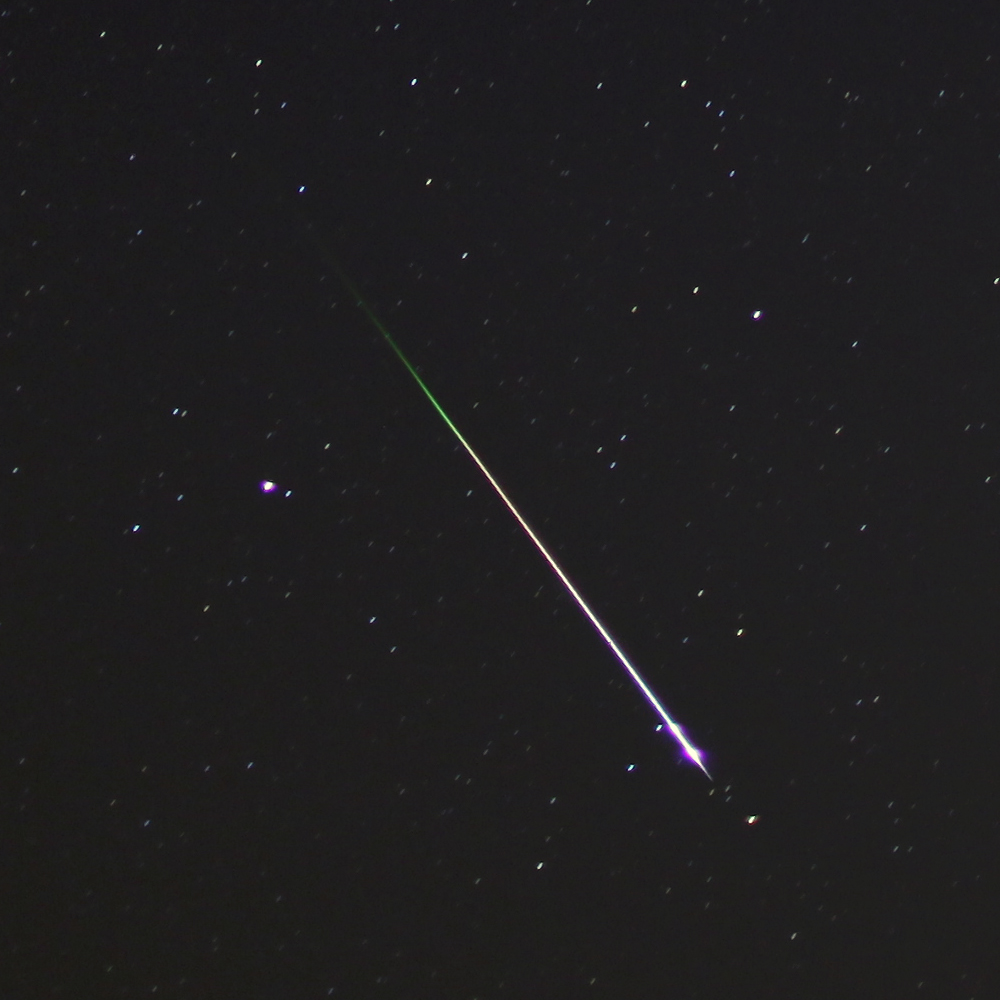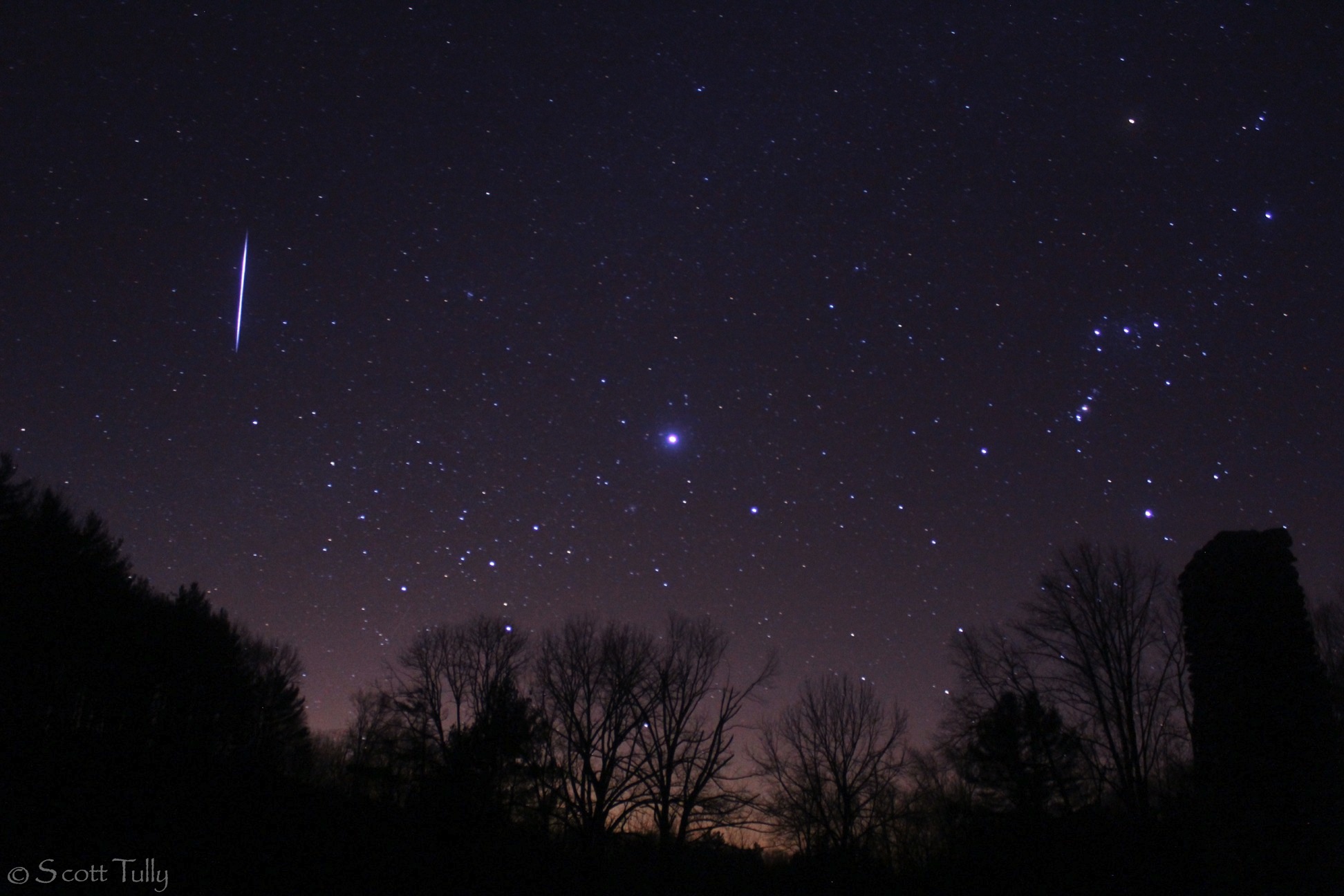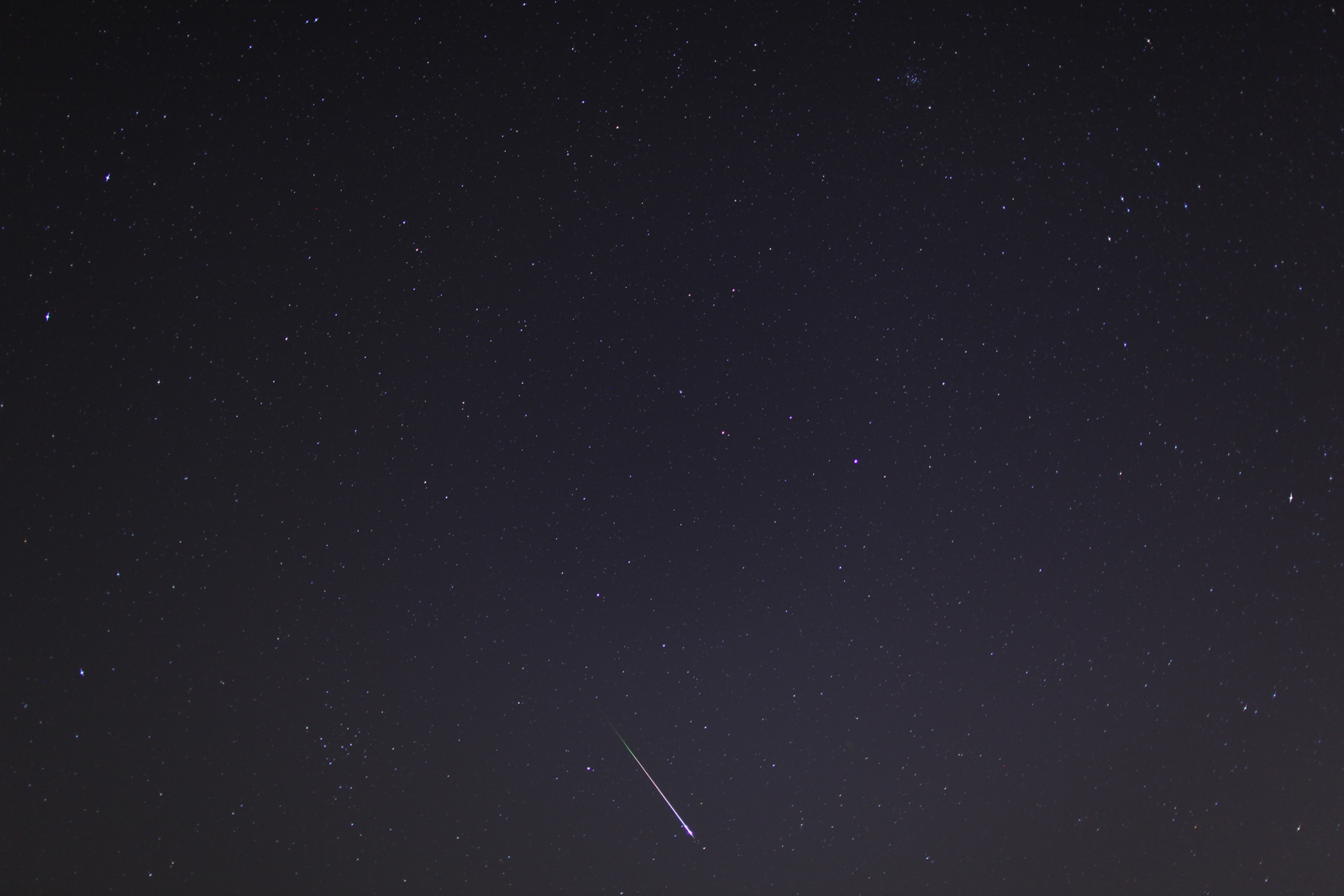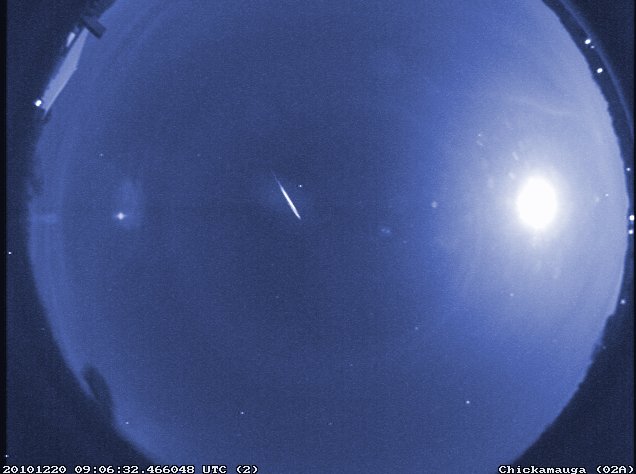Amazing Leonid Meteor Shower Photos Captured By Stargazers

The Leonid meteor shower peaked early Saturday (Nov. 17), and some night sky watchers caught a great view.
The Leonids are a yearly meteor display of shooting stars that appear to radiate out of the constellation Leo. They are created when Earth crosses the path of debris from the comet Tempel-Tuttle, which swings through the inner solar system every 33 years.
This year, the Leonids are offering an especially good show because the moon is only in its crescent phase right now (so its light isn't too bright to wash out the meteors) and it sets in the west long before the constellation Leo begins to rise into the night sky.
One skywatcher, photographer Scott Tully in rural Connecticut, was delighted to snap a photo of a bright Leonid meteor as it streaked overhead just after 5 a.m. EST on Saturday. He summed the experience up in one word: "Amazing!"

Another observer, Mike Hankey of Freeland, Md., also snapped gorgeous photos of the Leonids before dawn Saturday morning.

While the first peak time to see the Leonids this year passed this morning, there's still a chance of catching a good show. These meteors are expected to offer a second peak of activity this coming Tuesday morning, Nov. 20.
Editor's note: If you snap an amazing photo of the Leonid meteor shower and would like to share it with SPACE.com for a possible story or image gallery, send images, comments and location information to managing editor Tariq Malik at tmalik@space.com.
Get the Space.com Newsletter
Breaking space news, the latest updates on rocket launches, skywatching events and more!

You can follow SPACE.com assistant managing editor Clara Moskowitz on Twitter @ClaraMoskowitz. Follow SPACE.com on Twitter @Spacedotcom. We're also on Facebook & Google+.
Join our Space Forums to keep talking space on the latest missions, night sky and more! And if you have a news tip, correction or comment, let us know at: community@space.com.

Clara Moskowitz is a science and space writer who joined the Space.com team in 2008 and served as Assistant Managing Editor from 2011 to 2013. Clara has a bachelor's degree in astronomy and physics from Wesleyan University, and a graduate certificate in science writing from the University of California, Santa Cruz. She covers everything from astronomy to human spaceflight and once aced a NASTAR suborbital spaceflight training program for space missions. Clara is currently Associate Editor of Scientific American. To see her latest project is, follow Clara on Twitter.









